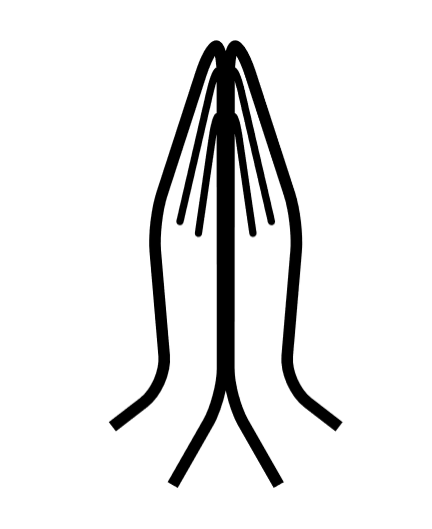Summary:
– secular and religious view on a human being;
– base for moral code.
How we stumbled upon a fundamental difference

I was speaking on the phone to my friend on the way home from Connecticut. We touched many subject, but eventually we hit the most evil of them all – Peter the Great, Napoleon, Lenin, Stalin, Hitler. My friend said that without a doubt there is nothing good can be said about Lenin and Stalin. I was objecting that Lenin was striving very hard in his own way to bring happiness to all humanity, and Stalin in some 50 years will be perceived as great as Peter the Great. I insisted that every person sees herself as a collection of virtues and other people only too myopic to see all these virtues. My friend was dismayed by that notion. He did not react immediately, but later he emailed me that he doesn’t accept this notion. Instead, he postulated that every person, above all, is a sinner, and that is what guilt (Russian: “совесть”) is based on.
Secular and Religious point of view
In my eyes, a person is almost always good in her own eyes. The moral guidance is based on positive or negative judgment from surrounding people.
Note 01. Without people’s judgment person has no idea what is good and what is bad.
Note 02. Person absorbs previous judgment lessons and applies them at will even when no one is looking.
Note 03. Modern communications and Internet greatly expand the term “surrounding people” by including scores of people in a virtual proximity.
In the eyes of my friend, the moral guide for a person is a spark of divine in all of us. We might be all different, but the moral code in all of us the same. If you encounter a bad, shameless person, you need to purify that person from her affliction, to wake divine in her, and turn one more soul from evil to god.
What is the basis for moral code?
In my view, people with a strong or poor moral guidance will have some advantages and some disadvantages in attracting mates and proliferating. Benefits of strong moral standings will oscillate depending on amount of food available, number of conflicts and wars, density of the population. Moral code itself most likely is not engraved in the genes, but the ability to absorb and follow it (moral code) is. If this ability to learn or to ignore moral code gives some survival advantage, it will be passed on to next generations like any other helpful trait.
In my friend’s eyes, people with a strong moral guidance will prosper because that is god’s providence. Good always trumps evil in the long run. And it is every disciple responsibility to proliferate and strengthen divine in all people.
How to perceive a single human being
Now, let’s get back to the original question on how to perceive a single human being. A crucial difference between secular and religious points of view is guilt. Secular point of view is that person potentially can be free of guilt. If person (1) doesn’t perceive any wrongdoing towards others and (2) if there is no reproach from others, there is no reason for a person to feel guilty. On the other hand, for a person who thinks of herself as a sinner, everything is a sin – food, sex, laugh, hobby. Life itself is a relatively brief preparation and kind of an exam for the final judgment and eternal destiny.
For me this difference was an unexpected discovery. If you ask me to boil down the difference in secular and religious points of view on human being in one word, I would say obligation.
If you are “unattached” to faith, you do not own anyone anything. You might choose not to offend your neighbors so that they might return the favor. If you are a disciple of faith, you are guilty by the very fact of your existence. To counterweight the guilt you are obliged to behave, to follow the rules, to set an example.
Missing conclusion
I understand that this difference in view is fundamental, but I sense that the main consequence of this difference remains hidden for me. Now it is time to “drop the pen” and start thinking.


Be the first to comment